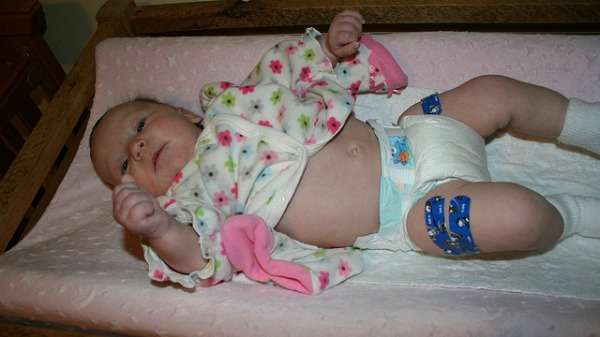Whooping cough research pinpoints diminishing immunity period

The tragic death of a baby boy in Perth earlier this year has again highlighted the importance of the whooping cough vaccine and research by the Telethon Kids Institute will soon ensure young children are better protected.
Riley John Hughes was just four weeks old when he died of whooping cough, an infection of the respiratory tract which is particularly serious for newborn babies.
That is because babies under six months cannot be fully immunised against whooping cough (also known as pertussis).
It is up to the rest of the community to get a jab to protect the most vulnerable.
"It is known as herd immunity—by vaccinating everyone else, the child is protected despite not being immunised themselves," Telethon Kids Institute immunisation researcher Dr Tom Snelling says.
Researchers are always seeking to make vaccines more effective and Dr Snelling recently conducted two studies in collaboration with the National Centre of Immunisation Research and Surveillance.
The first study showed the protection children receive from their three baby doses of whooping cough vaccine starts to wear off after a couple of years.
"This means that children are at increased risk of whooping cough before they have their booster dose at age four years," Dr Snelling says.
"This is important because three year olds with whooping cough can also infect any baby siblings in the household."
As a result of this research, from October, Australian parents will be able to have their child boosted against whooping cough at 18 months, rather than having to wait until four years of age.
Dr Snelling also collaborated on another project which assessed whether vaccinating parents against whooping cough helps to protect their newborn babies.
"The idea is that if parents are protected then their babies will be less likely to be exposed to infection," Dr Snelling says.
"This could be especially helpful in the first few months of life when a baby is too young to be fully protected by their own immunisations."
"We found that babies born to immunised parents were half as likely to be infected with whooping cough than babies born to parents who had never received a whooping cough booster."
"However, waiting until after the baby is born to give parents the booster dose appears to be too late, probably because it takes a few weeks for the booster dose to take effect."
Subsequent overseas research showed the optimal time to provide whooping cough vaccine booster doses to mothers is at the end of pregnancy.
This protects both the mother and also boosts the transfer of protective antibodies to the newborn through the placenta.
Dr Snelling says fathers who have not received a booster should also receive one, preferably before their baby is born.
A whooping cough booster has recently become recommended and available for WA women.

















